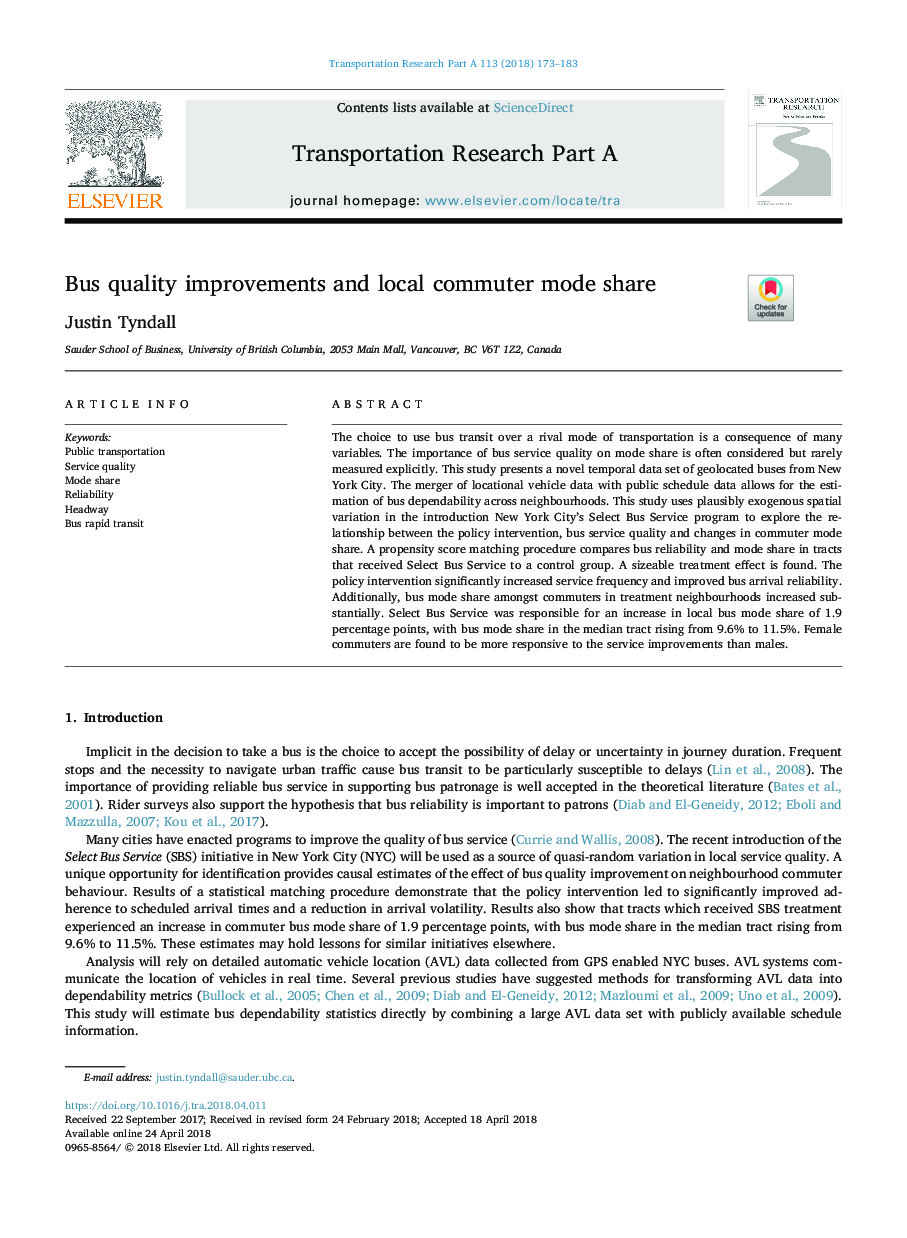| Article ID | Journal | Published Year | Pages | File Type |
|---|---|---|---|---|
| 6780114 | Transportation Research Part A: Policy and Practice | 2018 | 11 Pages |
Abstract
The choice to use bus transit over a rival mode of transportation is a consequence of many variables. The importance of bus service quality on mode share is often considered but rarely measured explicitly. This study presents a novel temporal data set of geolocated buses from New York City. The merger of locational vehicle data with public schedule data allows for the estimation of bus dependability across neighbourhoods. This study uses plausibly exogenous spatial variation in the introduction New York City's Select Bus Service program to explore the relationship between the policy intervention, bus service quality and changes in commuter mode share. A propensity score matching procedure compares bus reliability and mode share in tracts that received Select Bus Service to a control group. A sizeable treatment effect is found. The policy intervention significantly increased service frequency and improved bus arrival reliability. Additionally, bus mode share amongst commuters in treatment neighbourhoods increased substantially. Select Bus Service was responsible for an increase in local bus mode share of 1.9 percentage points, with bus mode share in the median tract rising from 9.6% to 11.5%. Female commuters are found to be more responsive to the service improvements than males.
Related Topics
Physical Sciences and Engineering
Engineering
Civil and Structural Engineering
Authors
Justin Tyndall,
